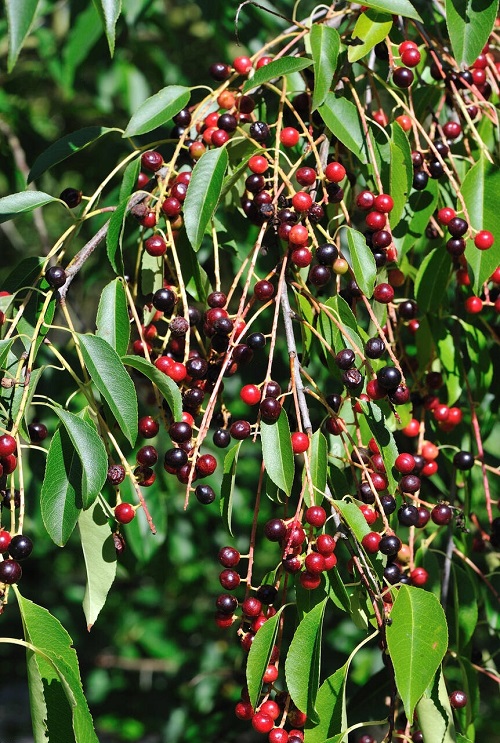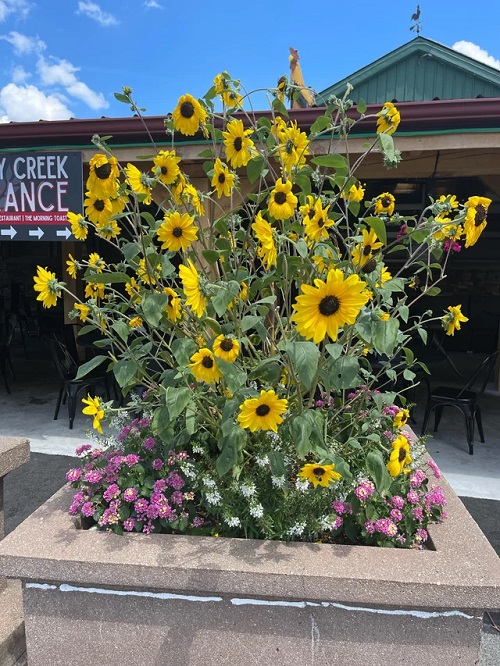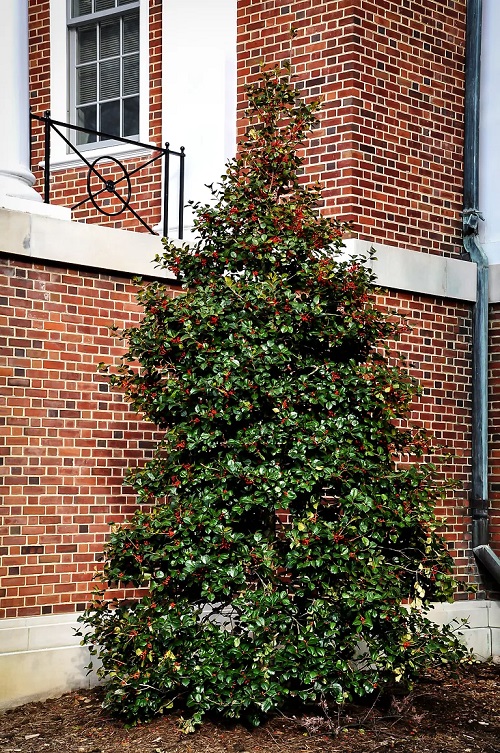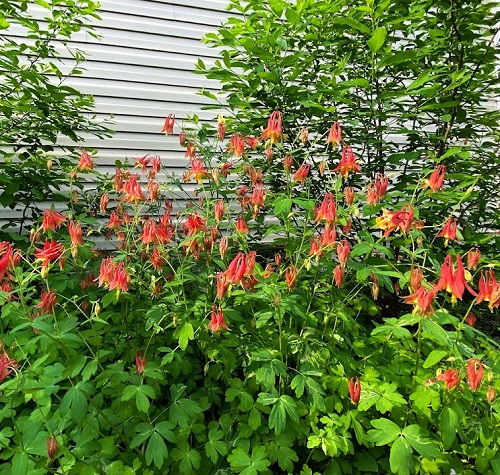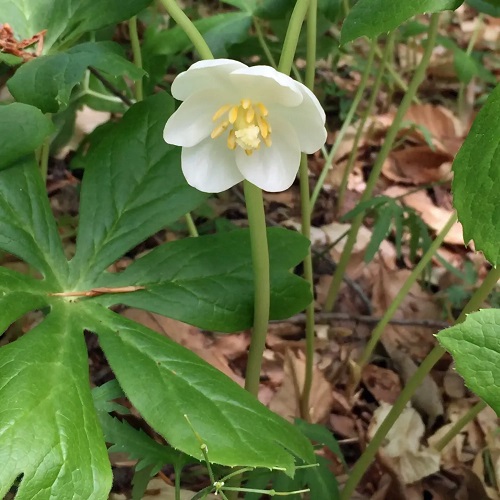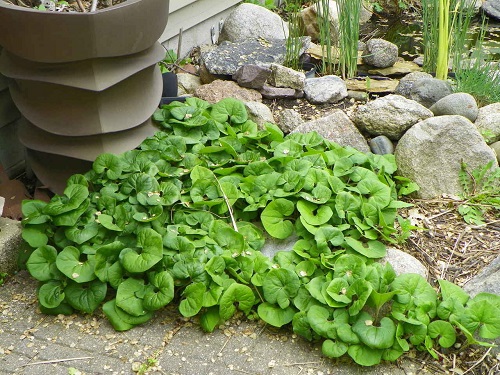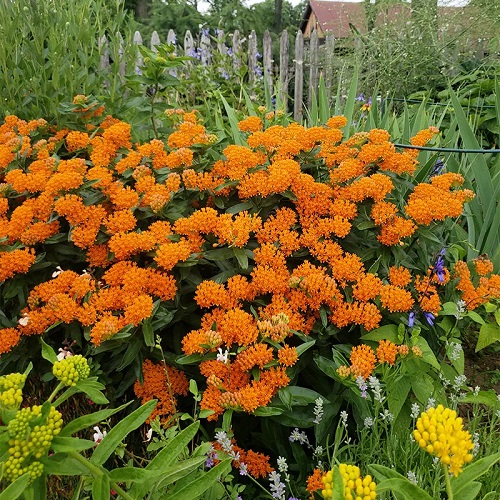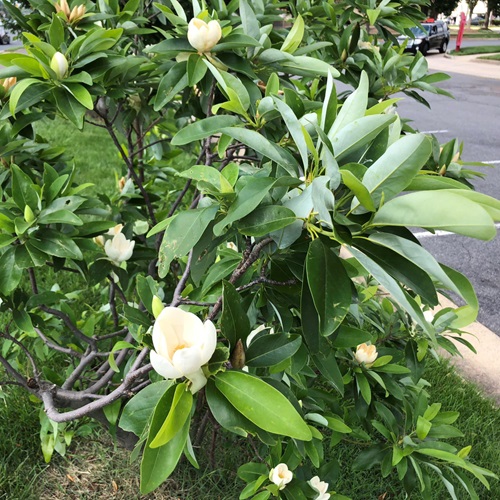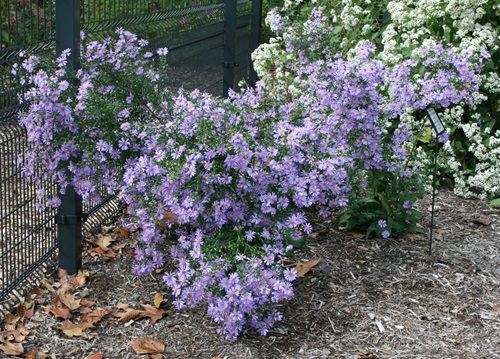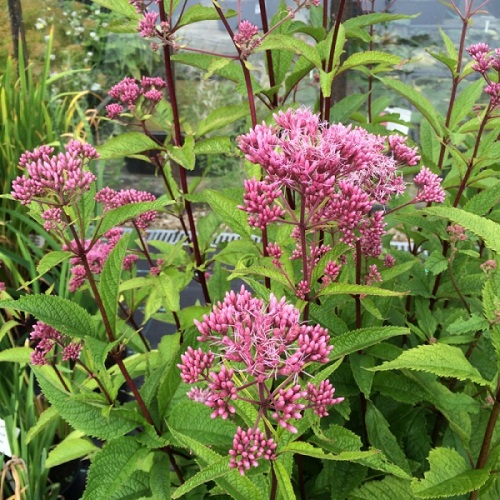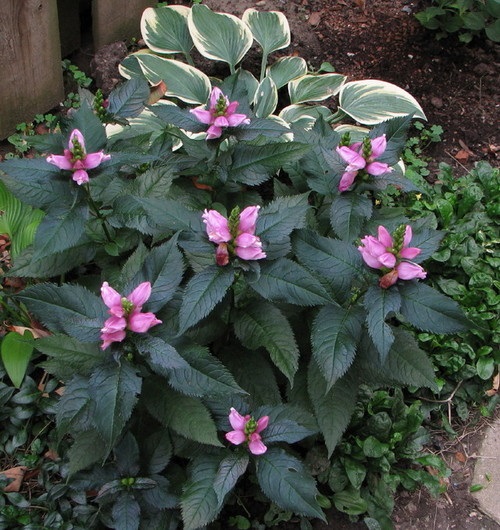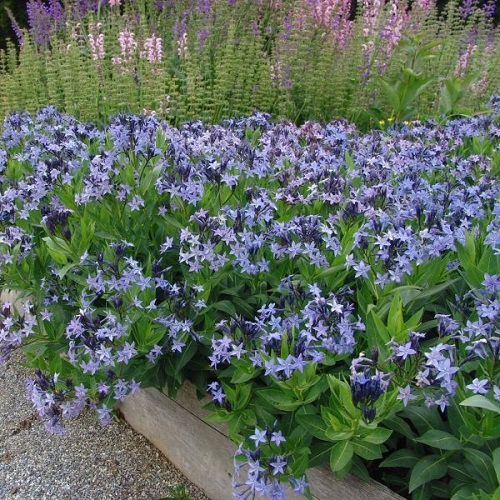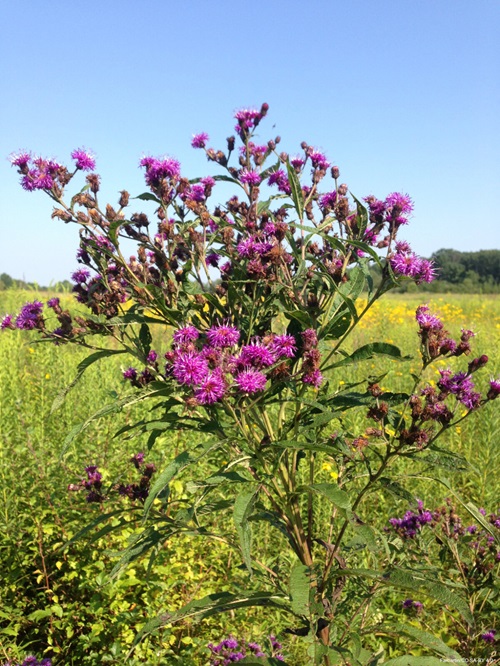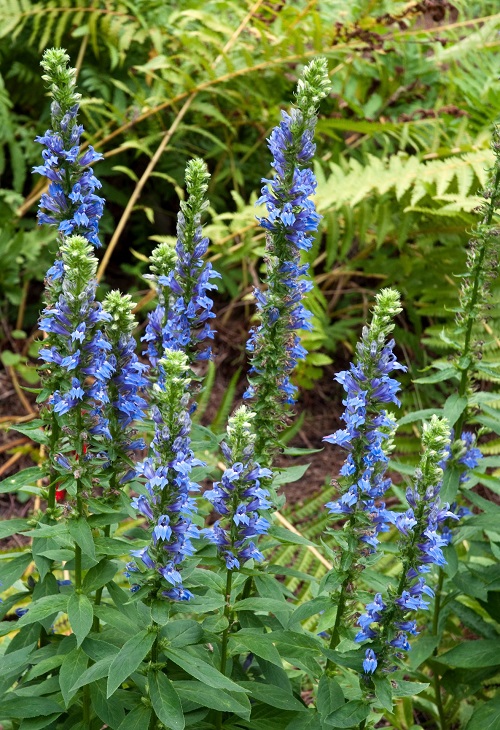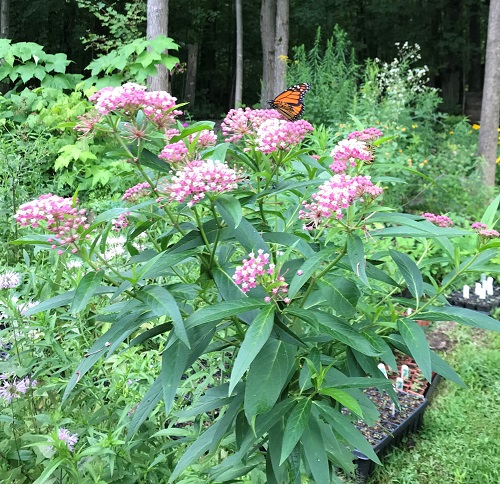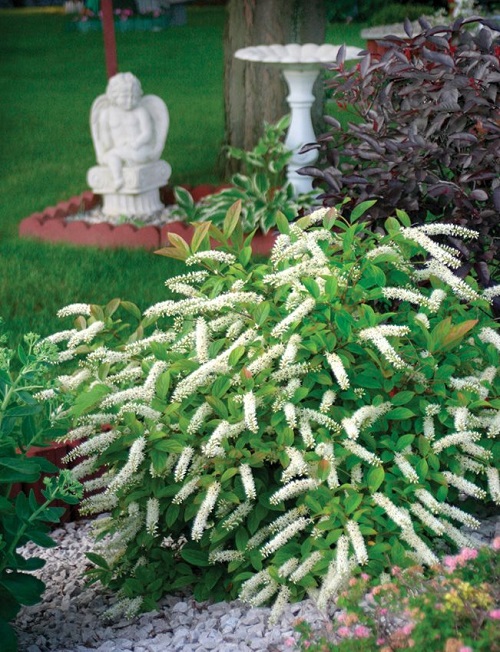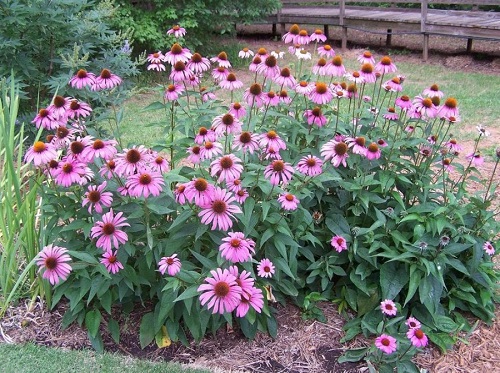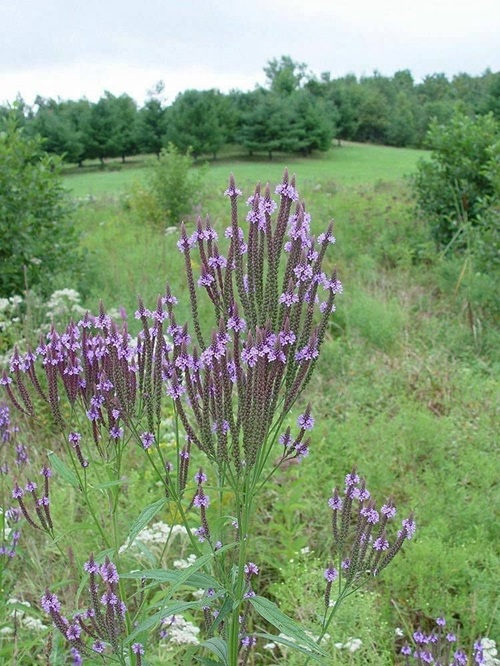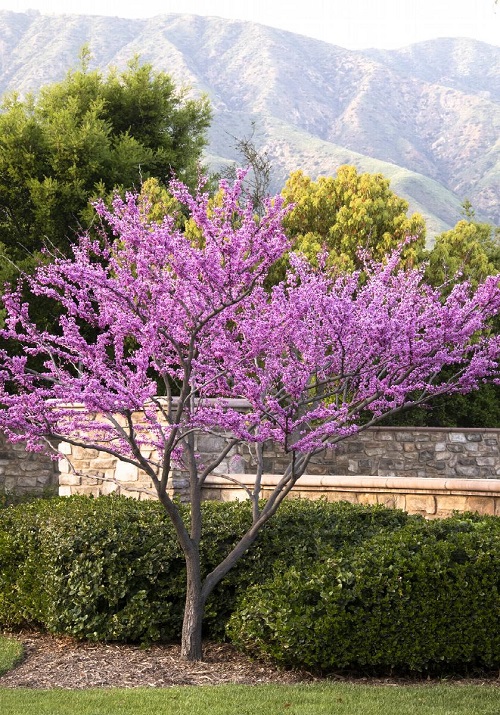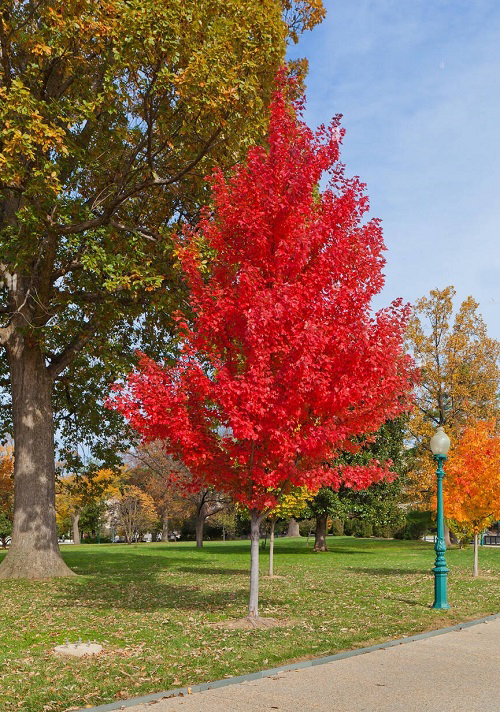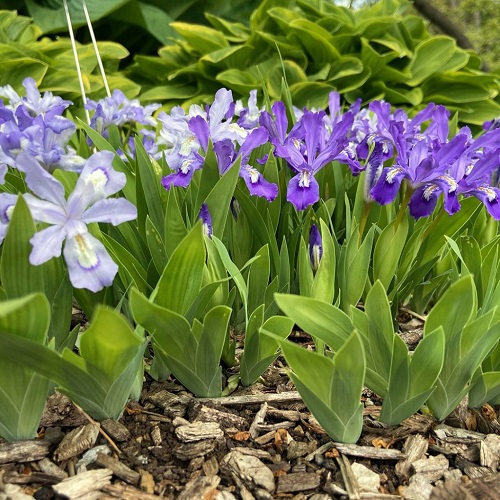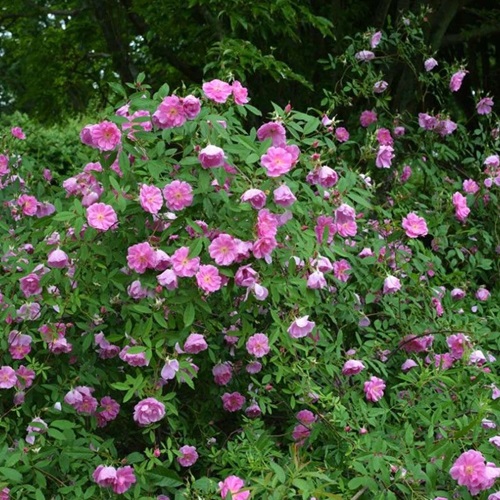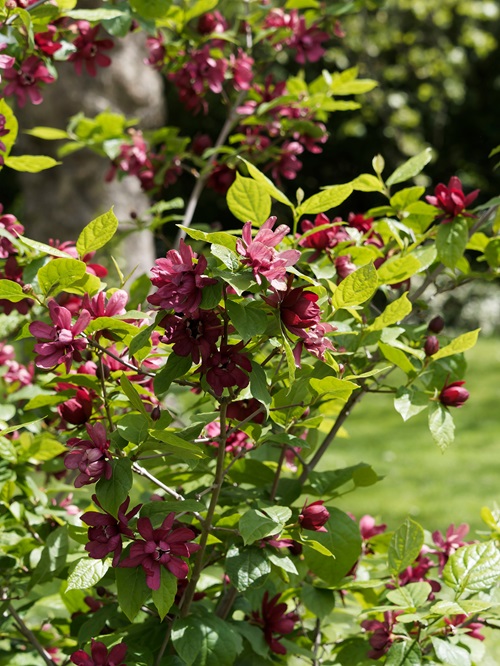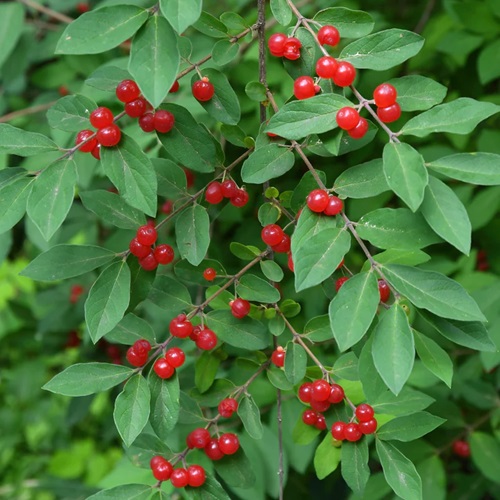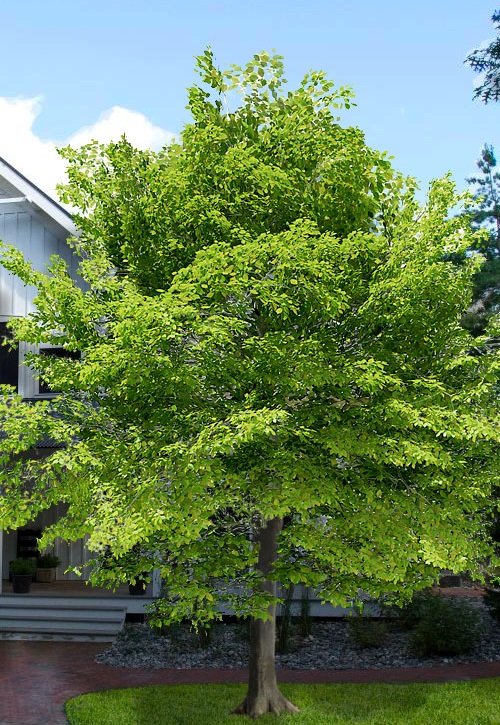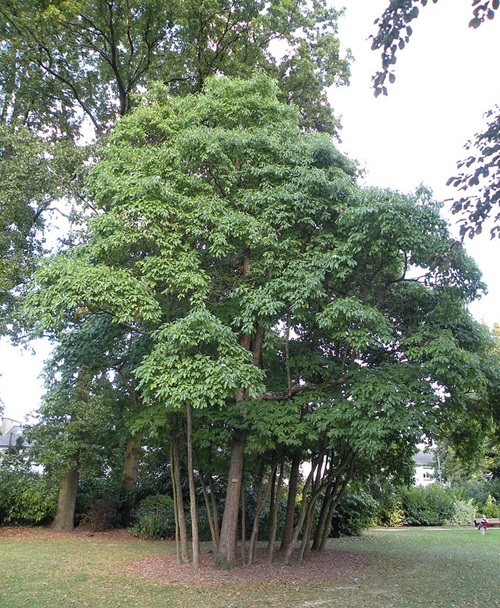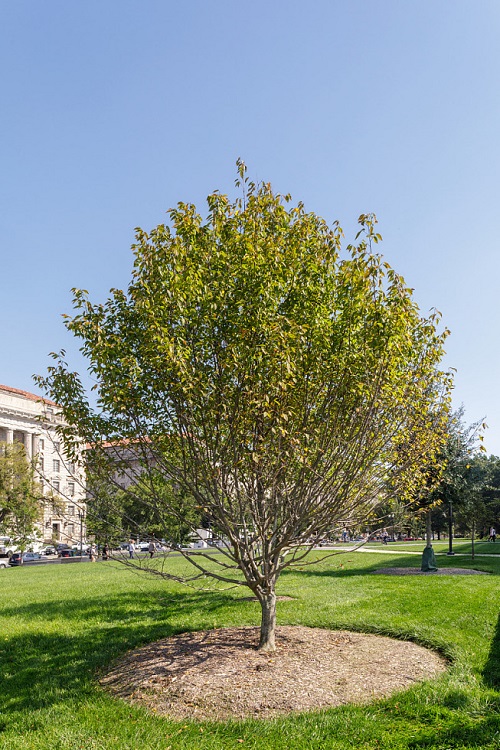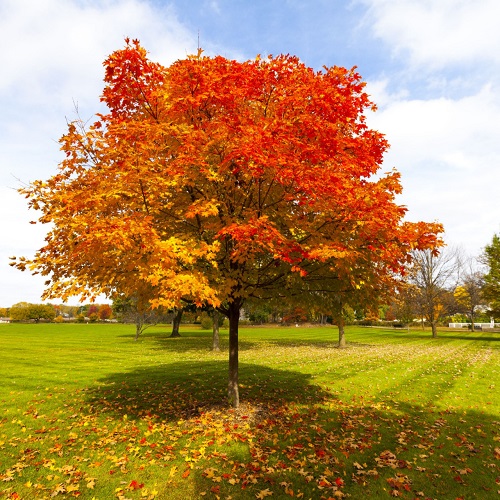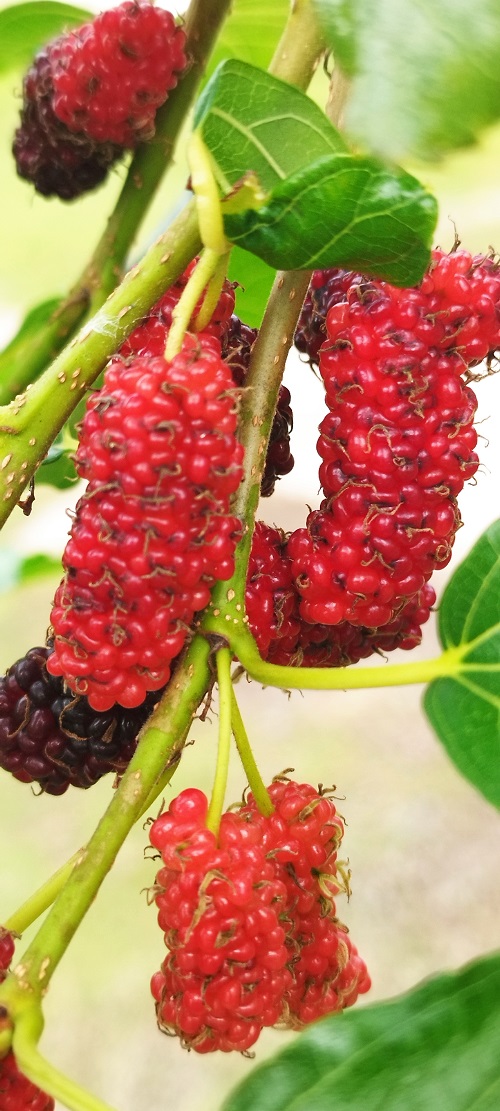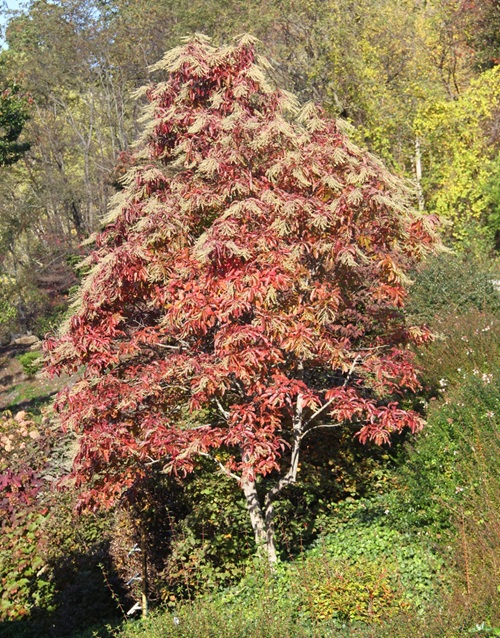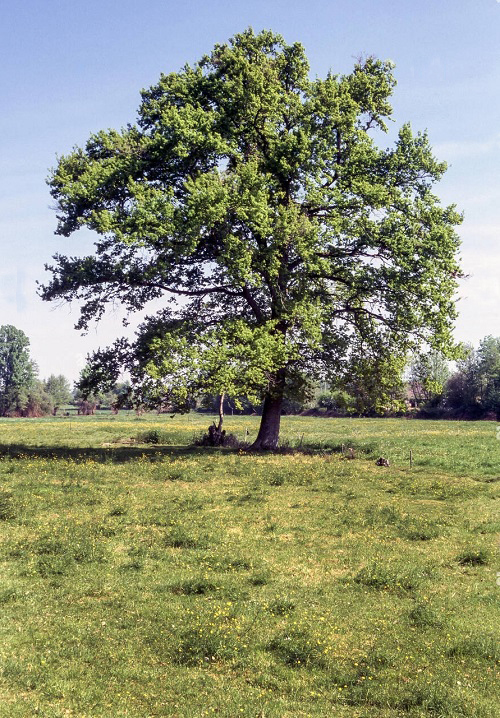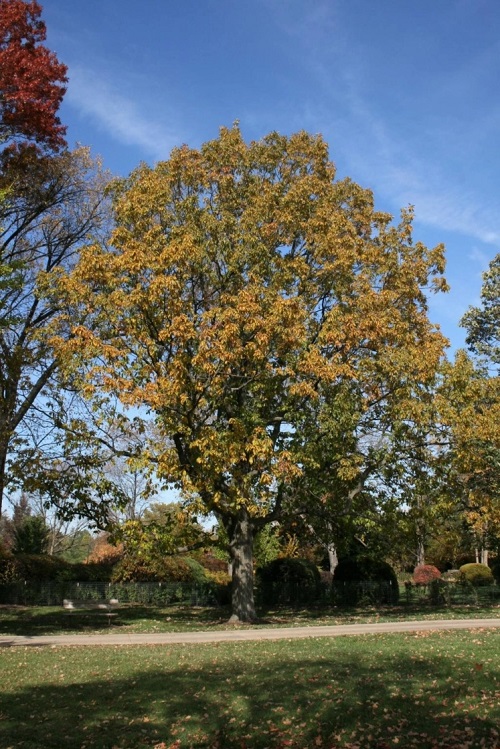Virginia Native Plants are a wide spectrum of botanical wonders, including flowers, trees, and foliage beauties!
These Virginia Native Plants offer a mesmerizing blend of beauty, resilience, and environmental harmony, making them an indispensable choice for garden enthusiasts and eco-conscious landscapers alike.
Check out Illinois native plants here
Virginia Native Plants
1. Black Cherry
Botanical Name: Prunus serotina
Clusters of white blooms appear in spring on the Black Cherry, followed by small cherries, providing food for birds.
2. Virginia Bluebell
Botanical Name: Mertensia virginica
Delicate, bell-shaped flowers of soft blue and pink hues bloom in spring on the Virginia Bluebell, creating a charming woodland display.
3. Cardinal Flower
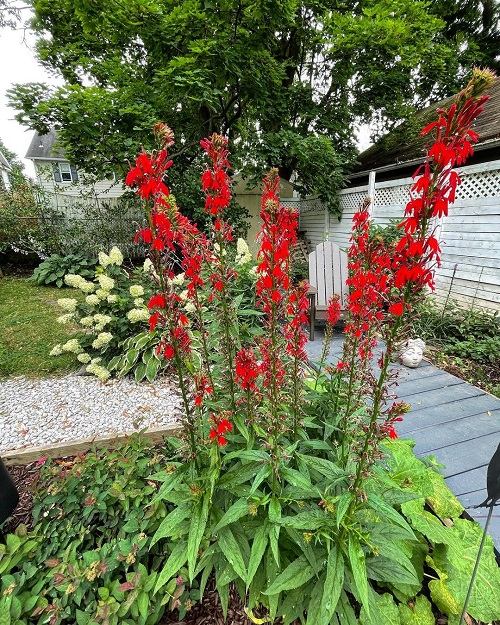
Botanical Name: Lobelia cardinalis
Sporting vibrant red spikes of tubular flowers, this plant attracts hummingbirds and thrives near water sources. Its bold color stands out in gardens and natural habitats.
4. Black-Eyed Susan
Botanical Name: Rudbeckia hirta
With golden-yellow petals and a dark center, this flower blooms all summer. It’s a hardy plant, perfect for sunny gardens.
5. Virginia Creeper
Botanical Name: Parthenocissus quinquefolia
Known for its vibrant red foliage in fall, this Virginia native climbing vine has five-leaflet leaves and tiny green flowers.
5 Endangered Flowers in Michigan
6. American Holly
Botanical Name: Ilex opaca
Glossy, spiky leaves and bright red berries in winter make this evergreen shrub stand out. It’s great for landscaping and provides food for birds during colder months.
7. Eastern Red Columbine
Botanical Name: Aquilegia canadensis
This perennial Virginia native plant features drooping, bell-shaped red and yellow flowers. It attracts hummingbirds and butterflies.
8. Mayapple
Botanical Name: Podophyllum peltatum
This native Virginia plant grows in colonies, creating a unique ground cover in shaded woodlands and adding a touch of wild beauty.
9. Spicebush
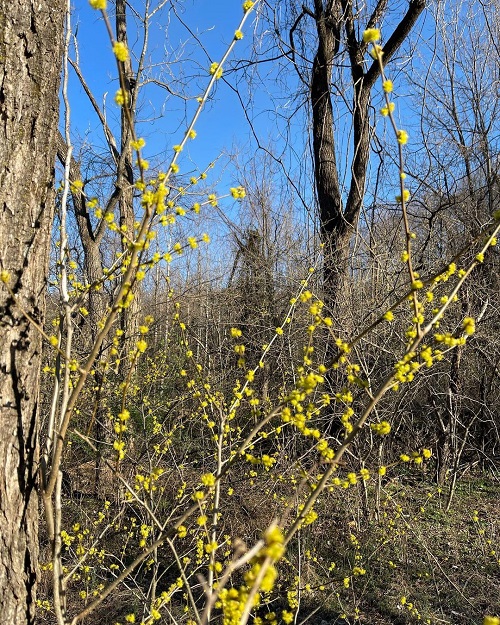
spindlehillfarm
Botanical Name: Lindera benzoin
Fragrant yellow flowers bloom before leaves emerge on this plant, and spicy red berries follow. It’s a host plant for butterflies and provides natural pest control in gardens.
10. Wild Ginger
Botanical Name: Asarum canadense
The beautiful heart-shaped leaves of the Wild Ginger carpet the ground, and hidden maroon flowers bloom close to the ground.
Complete List Of 26 Illinois Native Plants
11. White Trillium
Botanical Name: Trillium grandiflorum
Three large, white petals make up this flower, which blooms in early spring. It’s a woodland plant that adds elegance to natural landscapes.
12. Butterflyweed
Botanical Name: Asclepias tuberosa
Clusters of vibrant orange flowers adorn the beautiful Butterflyweed plant in summer, attracting bees and butterflies to the garden.
13. Sweet Bay Magnolia
Botanical Name: Magnolia virginiana
The Sweet Bay Magnolia has creamy white, lemon-scented flowers that perfectly complement its glossy green leaves.
14. Common Milkweed
Botanical Name: Asclepias syriaca
Pinkish-purple, ball-like clusters of flowers grace the wonderful Common Milkweed plant. It’s essential for monarch butterflies.
15. Smooth Aster
Botanical Name: Aster laevis
The Smooth Aster has small, lavender-blue flowers that create a profusion of color in late summer and fall.
21 California Native Shade Plants
16. Joe-Pye Weed
Botanical Name: Eutrochium purpureum
Joe-Pye Weed is a Virginia native plant with clusters of fluffy, mauve-pink flowers on tall stems. It thrives in moist soil, adding height and color to gardens.
17. Pink Turtlehead
Botanical Name: Chelone lyonii
The Pink Turtlehead is a Virginia native with rose-pink, snapdragon-like flowers that bloom in late summer. It’s a great choice for wet areas.
18. Eastern Bluestar
Botanical Name: Amsonia tabernaemontana
Clusters of star-shaped, light blue flowers adorn the Eastern Bluestar. It features fine-textured foliage and turns golden in fall.
19. Turk’s Cap Lily
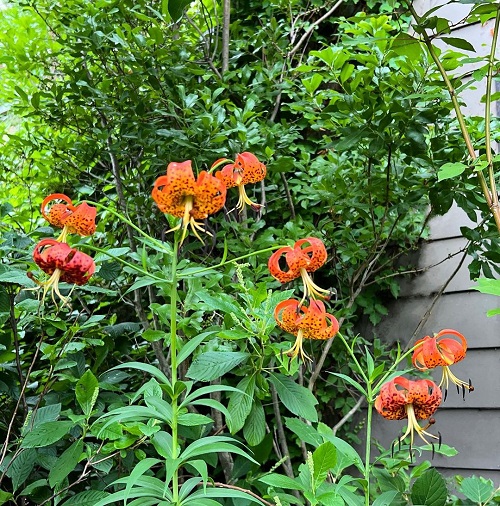
Botanical Name: Lilium superbum
The Turk’s Cap Lily comes with uniquely shaped, downward-facing orange flowers, perfect for making a statement.
20. Goldenrod
Botanical Name: Solidago spp.
Goldenrod is a hardy plant with plumes of bright yellow flowers, that stand out amazingly with its light to dark green leaves.
47 Best Native Florida Flowers
21. New York Ironweed
Botanical Name: Vernonia noveboracensis
The New York Ironweed has clusters of deep purple flowers that grow atop tall stems. It thrives in sunny, moist areas, enhancing garden biodiversity.
22. Great Blue Lobelia
Botanical Name: Lobelia siphilitica
With spikes of vibrant blue flowers, the Great Blue Lobelia is a garden favorite from Virginia. It prefers moist soil and partial shade, making it a valuable addition to rain gardens.
23. Swamp Milkweed
Botanical Name: Asclepias incarnata
Clusters of pink flowers grow on the Swamp Milkweed, attracting many pollinators. It’s a host plant for native butterflies like the Monarch and thrives in wetland areas.
24. Bee Balm 
Botanical Name: Monarda spp.
Bee Balm is a beautiful plant that has showy, tubular flowers in shades of red, pink, or purple.
25. Virginia Sweetspire
Botanical Name: Itea virginica
Fragrant white flowers drape gracefully on arching branches of the Virginia Sweetspire native plant. It’s adaptable to various soil types.
15 Best Chicago Native Plants
26. Buttonbush 
Botanical Name: Cephalanthus occidentalis
The Buttonbush plant has unique, round flower clusters that resemble pincushions and attract pollinators.
27. Eastern Purple Coneflower 
Botanical Name: Echinacea purpurea
With purple-petaled flowers with prominent orange-brown cones, the Eastern Purple Coneflower variety is a beauty to admire.
28. Lanceleaf Coreopsis
Botanical Name: Coreopsis lanceolata
With bright yellow, daisy-like blossoms, it’s a low-maintenance perennial that adds sunny charm to gardens.
29. Blue Vervain
Botanical Name: Verbena hastata
Blue Vervain is known for spikes of tiny blue flowers. It’s a versatile plant that thrives in different soil types, making it suitable for naturalizing.
30. Eastern Redbud 
Botanical Name: Cercis canadensis
This small tree flaunts heart-shaped leaves and clusters of pink flowers in early spring. It adds a pop of color to gardens and attracts butterflies.
18 Native European Plants | Plants Common to Europe
31. Red Maple
Botanical Name: Acer rubrum
The Red Maple is a wonderful Virginia native tree. Reddish flowers in spring and vibrant red foliage in fall characterize it, setting it apart.
32. Swamp Azalea
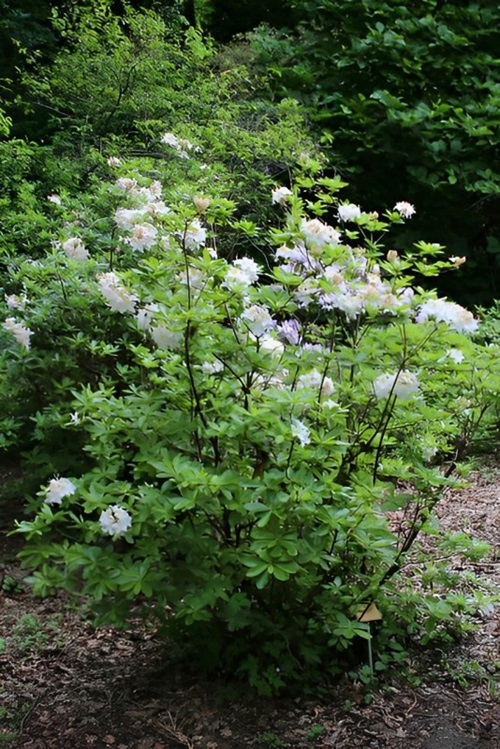
Botanical Name: Rhododendron viscosum
The Swamp Azalea gives fragrant, white to pink flowers that bloom in late spring. It thrives in wetland areas and adds beauty and fragrance to gardens.
33. Dwarf Crested Iris
Botanical Name: Iris cristata
The Dwarf Crested Iris has delicate, violet-blue flowers with yellow crests that grow close to the ground. It’s a shade-loving perennial and Virginia native.
34. Swamp Rose
Botanical Name: Rosa palustris
The Swamp Rose is a valuable plant for wet areas and has fragrant blooms in shades of pink.
35. Sweetshrub
Botanical Name: Calycanthus floridus
Sweetshrub is a low-maintenance Virginia native shrub with dark red-brown flowers that give off a fruity fragrance.
Check out the Native Plants and Trees of Florida here
36. Wintergreen
Botanical Name: Gaultheria procumbens
Glossy leaves and small, white, bell-shaped flowers characterize this Virginia native ground cover plant. It’s a shade-loving plant and provides year-round interest with its evergreen foliage.
37. Red Chokeberry
Botanical Name: Aronia arbutifolia
The Red Chokeberry has clusters of small white flowers. It also showcases beautiful red berries in the fall months.
38. American Beech
Botanical Name: Fagus grandifolia
A smooth gray bark and elliptical leaves define this beautiful tree species. You can easily spot this in various parks and lawns in Virginia.
39. Sassafras
Botanical Name: Sassafras albidum
The Sassafras is another native tree of Virginia with unique leaves that have three distinct shapes. It’s a pioneer species and has fragrant roots.
40. American Hornbeam
Botanical Name: Carpinus caroliniana
Smooth, muscle-like bark and serrated leaves make the American Hornbeam distinctive. It’s a small tree that tolerates shade.
Have a look at the best Australia Native Houseplants here
41. Red Oak
Botanical Name: Quercus rubra
Lobed leaves with bristle-tipped lobes are a hallmark of the Red Oak tree. It’s a large shade tree that supports diverse wildlife and enhances landscapes with its majestic presence.
42. Black Gum
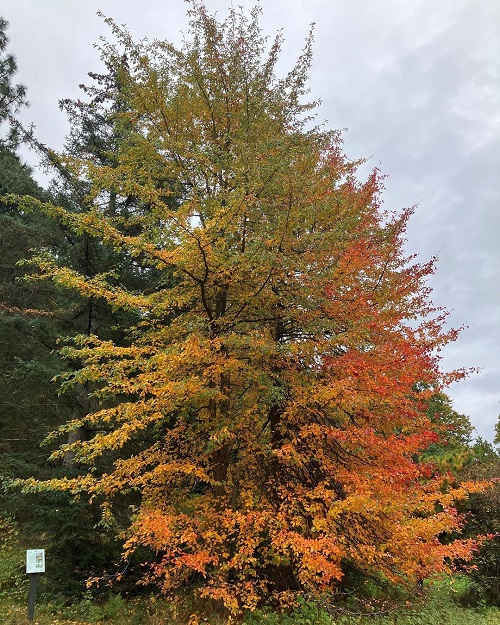
Botanical Name: Nyssa sylvatica
The Black Gum is a Virginia Native and has glossy leaves, brilliant fall foliage, and dark blue fruits.
43. Eastern Hemlock

Botanical Name: Tsuga canadensis
The Eastern Hemlock is an evergreen tree with short, flat needles and drooping branches. It’s a valuable tree for Virginia’s wildlife habitat.
44. Red Mulberry
Botanical Name: Morus rubra
Lobed leaves and sweet, edible fruits characterize this tree. The Red Mulberry provides food for birds and mammals and adds natural beauty to lawns.
45. Sourwood
Botanical Name: Oxydendrum arboreum
Sourwood is a Virginia native species that has flowers like Lily-of-the-valley and vibrant fall foliage. It’s a honey plant for bees.
45. American Basswood
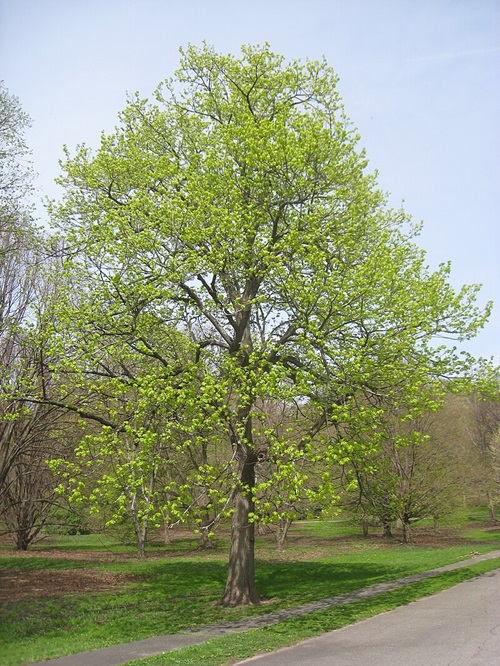
Botanical Name: Tilia americana
With heart-shaped leaves and fragrant flowers, the American Basswood adds charm to parks and gardens.
Have a look at the Victorian era houseplants that Britishers grew here
46. White Oak
Botanical Name: Quercus alba
A truly grand and beautiful tree, the White Oak has lobed leaves with rounded tips and acorns.
47. American Elm
Botanical Name: Ulmus americana
Oval leaves with serrated edges and a graceful canopy make the American Elm truly unique.
48. Chestnut Oak
Botanical Name: Quercus montana
The Chestnut Oak has a beautiful chestnut-shade bark and thrives in well-draining soil. It does not do well in standing water, though.
49. Virginia Pine

Botanical Name: Pinus virginiana
With short, twisted needles and small cones, this tree is a Virginia native and grows to 40-70 feet (12-21 meters).

